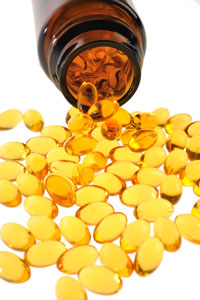 A large study published in the April edition of the Journal of the American Dietetic Association recently found that nutrient deficiencies increase the risk of anemia in older women.
A large study published in the April edition of the Journal of the American Dietetic Association recently found that nutrient deficiencies increase the risk of anemia in older women.
Anemia occurs when there are fewer than the normal number of red blood cells in the body or when there’s a lack of hemoglobin in the blood. While many know that dietary changes are often recommend to treat anemia, the study found that a deficiency just one of several key nutrients can lead to the condition. Women with who do not consume enough folate, vitamin B12, iron or vitamin C are 21 percent more likely to have anemia. Women with deficiencies in three of these nutrients are 44 percent more likely to have the condition.
Interestingly, taking multivitamin or mineral supplements did not reduce the risk of anemia. However, factors like age, smoking do body mass index were associated with different rates of risk. Furthermore, researchers found that inadequate nutrient intake is more frequent among black and Hispanic women.
“Additional efforts to regularly evaluate postmenopausal women for anemia should be considered and should be accompanied by an assessment of dietary intake to determine adequacy of intake of anemia-associated nutrients, including iron, vitamin B12 and folate,” wrote the research team, led by Cynthia A. Thomson, associate professor of nutritional sciences at the University of Arizona in Tucson. While the type of anemia is often designated by a more comprehensive biochemical assessment than hemoglobin alone, nutritional therapy to improve overall nutrient-density and quality of the diet should also be a clinical focus.”
Also Read:
